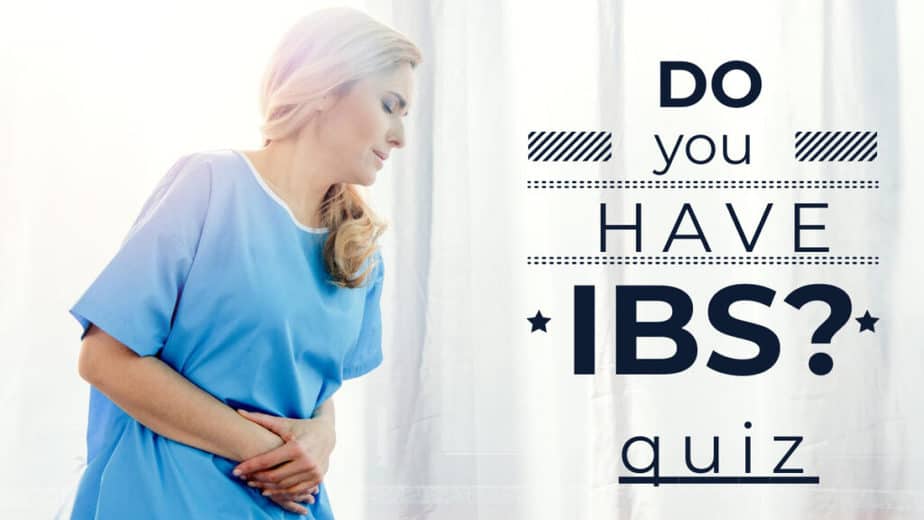IBS (irritable bowel syndrome) is a very common syndrome that affects many people, with some of the main symptoms being bloating, stomach pain, diarrhea, constipation, and gas.
IBS is not a life-threatening condition and you can still pretty much live a normal life. But it can still become incredibly annoying and disruptive, hindering your time out of the house and causing you some serious discomfort.
- Related article: What is IBS Medical Condition?
There is no cure for irritable bowel syndrome: instead, you have to figure out which foods cause negative symptoms, and which foods help alleviate the symptoms, and stick to a suitable diet that works for you. A lot of times, through trial and error, dietary changes can help you keep symptoms under control.
However, apart from adapting your diet and lifestyle, there are other possible treatments to help alleviate the symptoms. A lot of people recommend taking collagen supplements, as a way of keeping the IBS symptoms under control, so that they don’t affect you as much. Learn about more IBS Treatment Options.
- Related Article: Supplements for IBS Treatment
But what are collagen supplements? And should you really be taking them if you have irritable bowel syndrome?
We can answer those questions and clarify the matter, as well as provide extra information on the subject. Just keep reading, and let’s figure this out!
What are Collagen Supplements?
Before we get into the whole of whether you should or should not take collagen supplements for your IBS, we thought it would be best to clarify exactly what collagen supplements are, so we know what we are dealing with.
Collagen supplements are supplement pills that contain collagen (pretty much as the name states!). Collagen is a protein, in fact, it is one of the most abundant proteins found in the human body.
It is the main structural protein in charge of forming connective tissue within our body. So skin, bones, muscles, ligaments, tendons…they are all made up of collagen!
Collagen makes up around 80% of our skin, and it keeps skin elastic with the help of elastin. As we become older, our bodies produce less and less collagen, which is why skin becomes less elastic, and wrinkles and other signs of aging begin to appear.
In collagen supplements, we find collagen peptides (also commonly known as hydrolyzed collagen), which are slightly different from the natural collagen protein found in our bodies.
This supplemental collagen is made out of the same amino acids as normal collagen, but they are designed to be more easily absorbed by our bodies, as they are shorter chains. This allows them to be digested into our bloodstream so that they can truly supplement our body with the extra collagen.
Collagen supplements are incredibly popular, and very in demand, which is not surprising at all! Having extra collagen in your body can do a great deal of good, as it means there is plenty of collagen for your body’s structure to remain in top shape, and to be repaired if any damage is done.
It is also great from a dermatological point of view. Collagen supplements help reduce the signs of aging in your skin, as they help keep your skin elastic and smooth, making you appear younger for a longer time!
A lot of people also use collagen peptide supplements to help with their irritable bowel syndrome, and they take them as a regular treatment. But do collagen supplements actually help with IBS? And if so, how? We’ll take a look at that next!
Do Collagen Supplements Help with IBS?
Collagen supplements can do a lot of good in your body, as they are an extra boost of collagen protein to help keep your body structure in shape and functioning. But do they help with irritable bowel syndrome?
Well, collagen supplements can also help improve the gut lining, which is a part of the digestive system. Therefore, it is easy to assume that collagen supplements can help with IBS, right?
The truth is, we don’t know. There is no specific research whether collagen supplements can help increase the health of your digestive system and alleviate irritable bowel syndrome symptoms. Maybe they help, maybe they don’t.
Maybe they help for some people and not all, as IBS is very unique to each individual, with the symptoms showing up in different ways and triggered by different things. But the point is, we don’t have a straightforward answer as to whether collagen supplements help or not, because it hasn’t been studied in depth.
But then…why do so many people claim that collagen supplements help with IBS? They are often used as an easy treatment for the condition. So are these people lying?
We wouldn’t say they are lying. Many people assume that collagen supplements help with IBS because these supplements may, in theory, improve gut permeability.
Do Collagen Supplements Help with Leaky Gut Syndrome?
A small offshoot of the subject: leaky gut syndrome. Some people use collagen supplements to treat this, which relates to the whole using collagen to make your gut more permeable, this also being the main reason why people correlate the treatment to improving IBS.
Collagen is believed to help mend and repair the lining of the intestinal wall, therefore making it less permeable, so there is less leaking. There is some limited research suggesting that reducing intestinal permeability may help reduce antigens (“the bad guys”) from getting into the intestinal wall and blood stream and causing inflammation.
Collagen is used in many different ways within the body, so those supplements might not necessarily go to the gut, meaning they might not affect your gut’s permeability at all!
There is no official correlation between taking collagen supplements and the improvement of the gut’s permeability, which also means there is no official correlation between collagen supplements and the improvement of IBS symptoms.
Should you Take Collagen Supplements for Your IBS?
Let’s finish off by answering the main question of this article, the one you’ve probably been waiting for: should you take collagen supplements for your IBS?
The answer depends completely on you. There is nothing bad about taking collagen supplements, and they will always find one way or another to make themselves useful within your body, as the collagen protein is abundant and necessary within many of our tissues.
However, whether the collagen supplements will help with your IBS or not, remains a mystery. There is a small chance that they might help, but they might do nothing at all.
So the best course of action is to test them out for yourself, taking them regularly for a few weeks, and to see whether you notice any difference in your condition or not.
If you find that taking collagen supplements does help alleviate some of your IBS symptoms, then you should absolutely keep on taking them!
If you find that taking collagen supplements does not help with your IBS at all, then you can either stop taking them or continue to take them in order to reap the benefits in other aspects of your body, such as your skin and joints!
What we can say is that you should not take collagen supplements expecting them to treat your irritable bowel syndrome, as there is no official or scientific proof backing them in this regard, and chances are they won’t actually help with IBS.
Collagen and IBS Final Thoughts
Collagen supplements aren’t actually good for treating IBS symptoms, as there is no proof of them improving your gut or digestive system in any way.
Nevertheless, collagen supplements are good for many other things, and for some people, it could be that they do help with IBS symptoms, so it is worth giving them a shot and testing them out, just to see! Just don’t have any expectations of them being a valid treatment for IBS.
For more on dealing with IBS, check out these articles:


